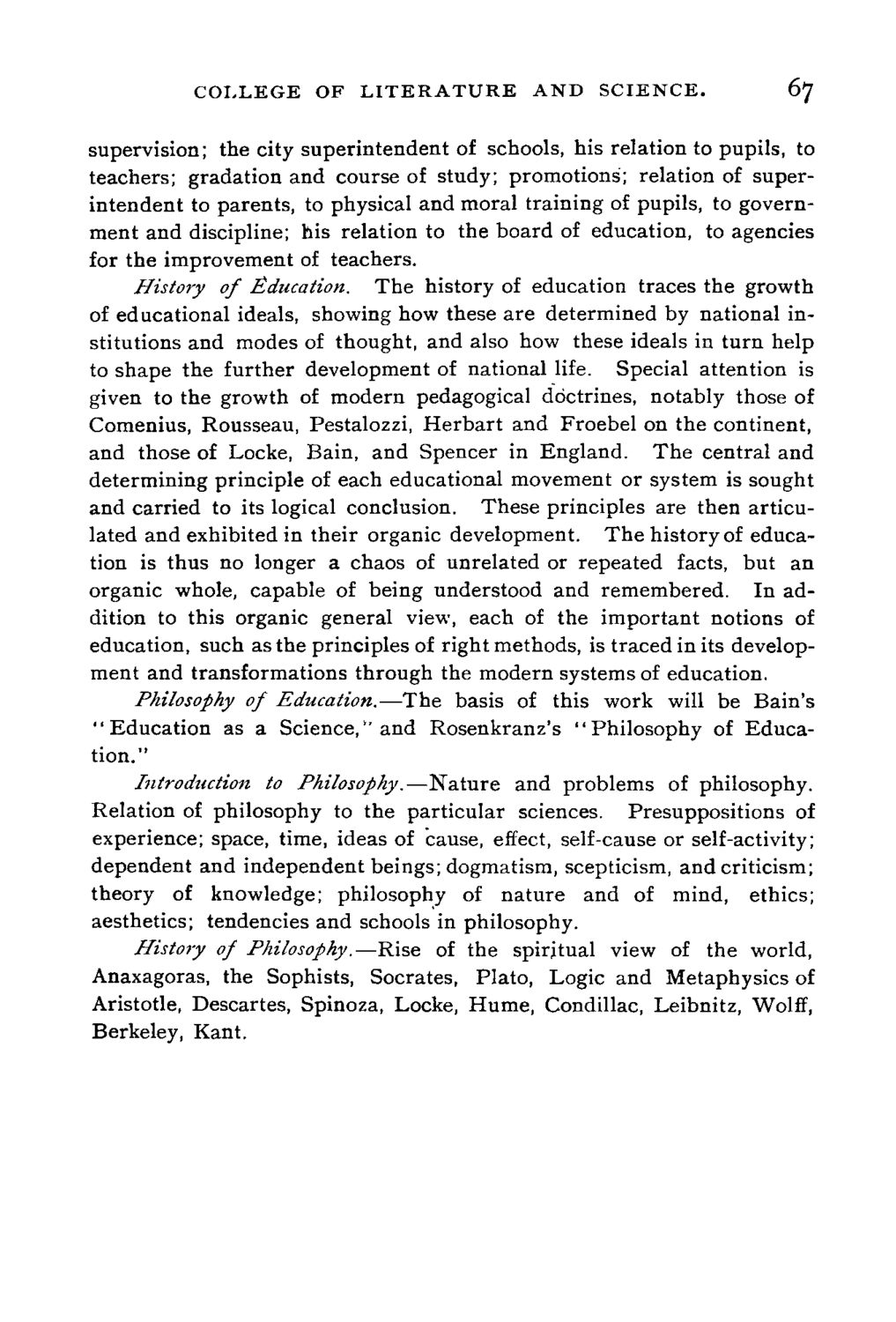| |
| |
Caption: Course Catalog - 1890-1891
This is a reduced-resolution page image for fast online browsing.

EXTRACTED TEXT FROM PAGE:
COLLEGE OF LITERATURE AND SCIENCE. 67 supervision; the city superintendent of schools, his relation to pupils, to teachers; gradation and course of study; promotions; relation of superintendent to parents, to physical and moral training of pupils, to government and discipline; his relation to the board of education, to agencies for the improvement of teachers. History of Education. The history of education traces the growth of educational ideals, showing how these are determined by national institutions and modes of thought, and also how these ideals in turn help to shape the further development of national life. Special attention is given to the growth of modern pedagogical doctrines, notably those of Comenius, Rousseau, Pestalozzi, Herbart and Froebel on the continent, and those of Locke, Bain, and Spencer in England. The central and determining principle of each educational movement or system is sought and carried to its logical conclusion. These principles are then articulated and exhibited in their organic development. The history of education is thus no longer a chaos of unrelated or repeated facts, but an organic whole, capable of being understood and remembered. In addition to this organic general view, each of the important notions of education, such as the principles of right methods, is traced in its development and transformations through the modern systems of education. Philosophy of Education.—The basis of this work will be Bain's "Education as a Science,"and Rosenkranz's "Philosophy of Education." Introduction to Philosophy.—Nature and problems of philosophy. Relation of philosophy to the particular sciences. Presuppositions of experience; space, time, ideas of cause, effect, self-cause or self-activity; dependent and independent beings; dogmatism, scepticism, and criticism; theory of knowledge; philosophy of nature and of mind, ethics; aesthetics; tendencies and schools in philosophy. History of Philosophy.—Rise of the spiritual view of the world, Anaxagoras, the Sophists, Socrates, Plato, Logic and Metaphysics of Aristotle, Descartes, Spinoza, Locke, Hume, Condillac, Leibnitz, Wolff, Berkeley, Kant.
| |